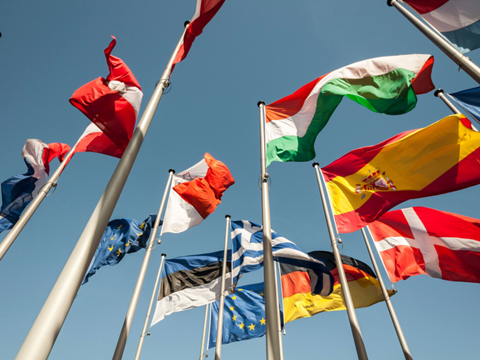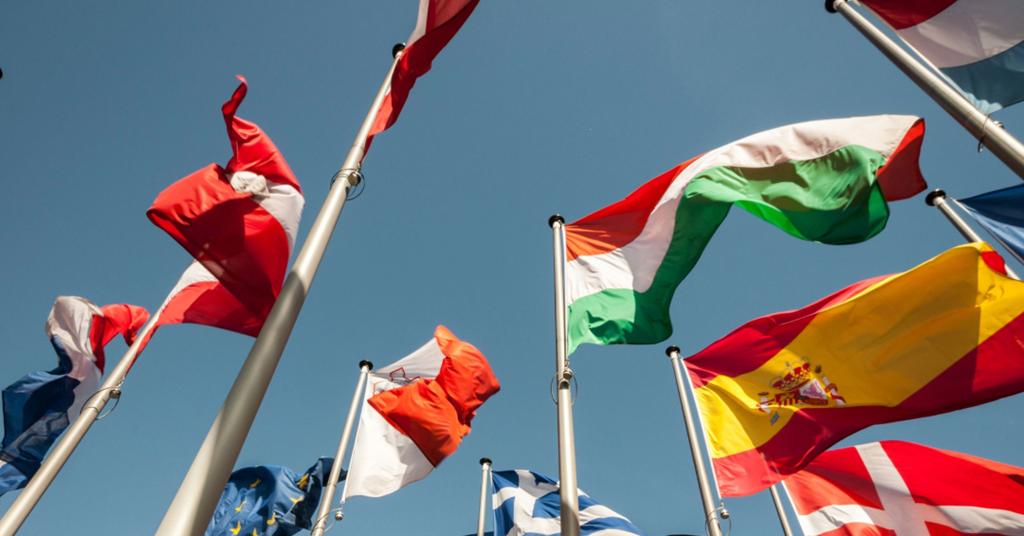
Will the EU’s Circular Economy Act help or hinder our industry? Jessika Roswell, European Commissioner for Environment, Water Resilience and a Competitive Circular Economy, lays out her vision in a keynote address at the European Policy Centre.
According to Commissioner Roswall, global resource extraction has more than tripled in the last fifty years, and humanity is using resources “nearly twice as fast” as ecosystems can regenerate them. She considers this “bad for the planet, bad for our economies, and bad for business.”
“Moving from a linear, wasteful economy to a circular, sustainable one is a political priority for the EU,” she told attendees.
Yet Roswall cautioned that the EU is “still almost 90% linear” and argued that its pursuit of circularity is lacking in speed and ambition.
“Some of this can be explained by the fact that much of the recent legislation promoting circularity has not entered into application yet,” she admitted, but added that “we need to get the economics right and create a Single Market for secondary raw materials.”
Citing Plastics Europe’s figure that only 13% of plastic production was based on recycled plastics in 2023, she told the audience that the EU is pushing for trade measures that level the playing field between primary and cheaper secondary plastics; introducing extended producer responsibility fees to finance collection and recycling; and, of course, introducing waste prevention and recycling legislation.
“But still, there isn’t enough confidence in future demand – and this is the killer bottleneck,” she warned. “Investors won’t build new recycling capacity unless they are confident they will be able to sell the recycled plastics.”
She also confessed that there is “no silver bullet” to fix the price disparity between EU recyclate and imported alternatives.
Nevertheless, the Circular Economy Act will reprotedly complement “several decades” of waste legislation and further the progress of the European Green Deal. Roswall believes that making better use of the same amount of natural resources will improve the EU’s economic security and resilience and boost its competitiveness, all while unlocking environmental benefits.
“We can reduce waste, create more value, and cut greenhouse gas emissions,” she said. “Circular measures alone could deliver at least 20–25% of the greenhouse gas emissions reduction we need to achieve climate neutrality by 2050.”
Regarding the Act’s development, Roswall emphasized that there is no ‘one-size-fits-all’ solution: “The bottlenecks for plastics are different from textiles, steel, aluminium or cement. That means the solutions will also be different.”
She went on to stress the importance of keeping every member of the value chain in mind, from recyclers and producers to traders and consumers.
“We are walking a fine line between having too much detail and complexity on the one hand, and establishing rules that are too general and lack nuance, on the other,” she said. “We have to get it right – and that takes time.”
On that note, she encouraged participation in a call for evidence and public consultation to better understand the needs, interests, and bottlenecks across EU markets. This will remain open until 6th November 2025.
She also shared that the EU will also complete a “serious” impact assessment. At the same time, she acknowledged that “Europe cannot wait” – that it is a major global exporter, yet it is facing the strain of high energy costs, strategic dependencies, and the risk of overcapacities in other global regions.
“Before the end of this year, we will adopt a series of short-term initiatives designed to boost investment, to apply trade measures where justified, and to simplify,” she declared.
“Together with the other elements of the Clean Industrial Deal, these measures will help to make our vision for economic security, competitiveness and decarbonization a reality.”
She conceded that “creating laws is messy” and “requires negotiation, collaboration and compromise.” Nevertheless, she opposed the idea of settling for “the unnecessary complexities that our system throws up in legislation.”
“That is exactly what we are trying to do now in the simplification omnibus,” she declared. “Our goal is to make it easier for businesses to do business – while continuing to uphold our high environmental standards.”
In conclusion, she underlined the importance of collaboration in the pursuit of circularity: “This cannot succeed without the input, the insight and the experience of industry, civil society, academia, policy makers and citizens. Of businesses big and small.
“So I urge you all to engage and commit. Help us to close the loop and drive this transition to a competitive, resilient and equitable circular economy.”
In other legislation-related news, the European Commission announced last month that it would delay the EU Deforestation Regulation for a second time due to ‘IT issues’. Nestlé, Mars Wrigley, Ferrero, and Tony’s Chocolonely have signed an open letter opposing the move, warning that the delay would increase compliance expenses, cause confusion, and run the risk of stakeholders disengaging.
Controversy also arose this summer after it was reported that the Commission would withdraw the proposal for a Green Claims Directive due to the administrative burden its most recent draft would place upon ‘30 million’ micro-enterprises.
An anonymous source later told Politico that President Ursula von der Leyen had no intention of backtracking, while Rapporteur Sandro Gozi argued in a press conference that the Commission was bending to the will of select political parties, including the European People’s Party.
If you liked this story, you might also enjoy:
The ultimate guide to the Packaging and Packaging Waste Regulation in 2025
How are the top brands progressing on packaging sustainability?
Everything you need to know about global packaging sustainability regulation in 2025
The key to increasing the use of reusable packaging in supermarkets
